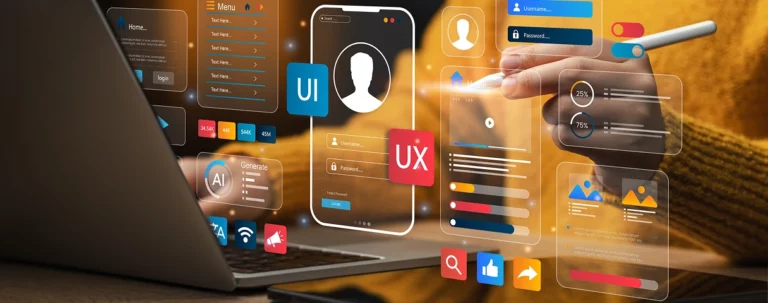
QA in the AI Age: AI-Powered Teams Deliver 2x Faster
Explore how AI slashes testing time and boosts reliability, plus, watch the full demo for deeper insights.

Diego Rivas
09/24/2025
For more than a decade, I’ve worked in software quality assurance, watching our discipline evolve from simple manual testing to a complex, strategic practice. But nothing has reshaped our world quite like artificial intelligence. AI isn’t just another tool — it’s fundamentally changing how QA teams operate, collaborate, and deliver quality. And if we embrace it wisely, it can make us twice as fast and exponentially more effective.
Quality Engineering Today: Beyond Bug Hunting
When we talk about quality engineering, we’re not just referring to validating a website or a mobile app. QA is about ensuring that the entire software development process produces a reliable, high-performing product. That means focusing on functional and non-functional attributes, integrating seamlessly with the development cycle, and relying heavily on human expertise.
A good QA process typically involves three key activities:
- Requirement Analysis – Reviewing business requirements, identifying risks, and spotting ambiguities before development even starts.
- Test Design & Setup – Preparing environments, configuring tools, writing test cases, and prioritizing automation candidates.
- Execution & Reporting – Running tests (manual and automated), logging defects, analyzing results, and providing actionable insights.
Each of these steps is essential — but they also come with challenges. Balancing speed with coverage, overcoming knowledge silos, and maintaining automation scripts are just a few of the common pain points teams face. This is where AI becomes a game-changer.
How AI Supercharges QA
AI’s real value lies in automation, augmentation, and acceleration. It takes on repetitive tasks, offers predictive insights, and even explores systems autonomously — freeing testers to focus on higher-level strategy.
Here are three high-impact applications I’ve seen deliver results:
- Intelligent Test Design: AI can analyze user stories and automatically generate test cases in natural language — even applying custom rules and naming conventions.
- Autonomous Exploration: AI agents can navigate an application on their own, mapping user flows, discovering edge cases, and providing valuable insights without human input.
- Automated Script Generation: AI can generate end-to-end test scripts based on discovered paths, improving readability and reducing redundancy.
Laying the Groundwork: What to Do Before AI
Before diving headfirst into AI-powered QA, you need a strong foundation. AI amplifies what’s already there — if your processes are weak, AI will only amplify the inefficiencies.
Focus on three essentials first:
- Clear, well-written requirements – Without accurate, detailed user stories and acceptance criteria, even the smartest AI will struggle.
- Consistent QA standards – Define test strategies, levels, and documentation practices to ensure alignment and traceability.
- Baseline metrics – Measure key KPIs like defect leakage, coverage, and execution time so you can assess AI’s impact later.
Strategic Ways to Use AI
Once your foundation is solid, you can integrate AI into your QA process strategically. Here’s how:
- Accelerate Test Design – Let AI handle initial drafts of test cases, reducing drafting time by 50–70%.
- Autonomous Exploration – Delegate exploratory testing to AI agents to quickly learn new products or map complex features.
- Frictionless Automation – Use AI prompts to build test frameworks from scratch, dramatically reducing setup time.
In this session, I showcase how AI generates test cases and performs exploratory testing with minimal human input.
Click Here to Watch the Full Demo
Lessons Learned from Real-World Demos
The difference between good and great AI outcomes is context. The more information you provide — user stories, acceptance criteria, wireframes, rules — the more accurate and useful the results. This principle holds true whether you’re generating test cases, scraping a website for insights, or running functional tests autonomously.
One of my favorite applications is delegating entire smoke test runs to an AI agent. By providing a CSV of test cases, environment variables, and execution rules, the agent can execute tests, capture screenshots, and even generate HTML reports — all without writing a single line of code.
AI Is Powerful — But It’s Not a Silver Bullet
Despite its potential, AI isn’t magic. It has limitations and requires human oversight:
- Human Review Is Essential – AI can design test cases, but humans must validate them.
- Customization Matters – Each project’s context is different, so AI solutions must be tailored, not one-size-fits-all.
- Iterative Adoption Works Best – Start small with proofs of concept, measure outcomes, and scale gradually.
The Future of QA: From Executors to Strategists
The most exciting part of AI’s evolution is how it’s redefining QA roles. We’re moving from test executors to quality strategists. Our focus will shift toward:
- Reviewing AI-generated outputs and ensuring quality.
- Defining quality KPIs and success metrics.
- Managing prompt libraries, data models, and automation pipelines.
- Collaborating with AI systems rather than controlling every detail.
Trends like self-healing test scripts and risk-based regression selection are already here, enabling more resilient automation and smarter test execution. And the next frontier — testing AI itself — will open entirely new dimensions in our field.
Final Thoughts
AI in QA isn’t about replacing testers. It’s about amplifying human expertise and unlocking new levels of speed, precision, and insight. By laying a strong foundation, integrating AI strategically, and maintaining human oversight, we can transform QA from a manual, reactive process into a proactive driver of product quality.
The shift is already happening. Our job now is to embrace it — not as executors, but as strategic partners to AI.
AI in QA isn’t about replacing testers. It’s about amplifying human expertise and unlocking new levels of speed, precision, and insight.

Diego Rivas
QA Automation ManagerRelated Articles
Looking For a Partner to Meet Your Business Goals?
See what Applaudo can do for you!
Explore Our Services


